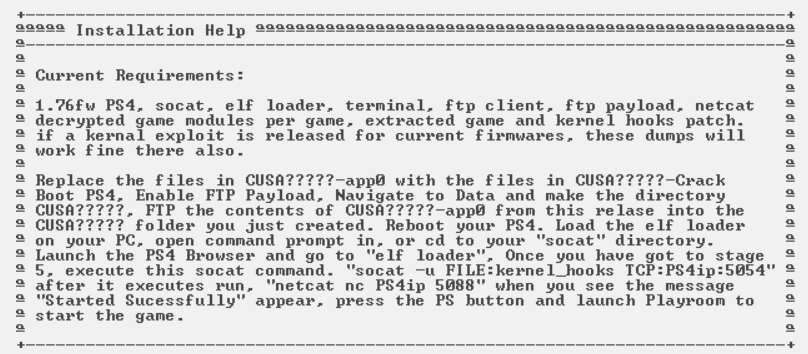 After at least 15 years of Internet pirates being monitored by copyright holders, one might think that the message would’ve sunk in by now. For many, it definitely hasn’t.
After at least 15 years of Internet pirates being monitored by copyright holders, one might think that the message would’ve sunk in by now. For many, it definitely hasn’t.
Bottom line: when people use P2P networks and protocols (such as BitTorrent) to share files including movies and music, copyright holders are often right there, taking notes about what is going on, perhaps in preparation for further action.
That can take a couple of forms, including suing users or, more probably, firing off a warning notice to their Internet service providers. Those notices are a little like a speeding ticket, telling the subscriber off for sharing copyrighted material but letting them off the hook if they promise to be good in future.
In 2013, the warning notice process in the US was formalized into what was known as the Copyright Alert System, a program through which most Internet users could receive at least six piracy warning notices without having any serious action taken against them. In January 2017, without having made much visible progress, it was shut down.
In some corners of the web there are still users under the impression that since the “six strikes” scheme has been shut down, all of a sudden US Internet users can forget about receiving a warning notice. In reality, the complete opposite is true.
While it’s impossible to put figures on how many notices get sent out (ISPs are reluctant to share the data), monitoring of various piracy-focused sites and forums indicates that plenty of notices are still being sent to ISPs, who are cheerfully sending them on to subscribers.
Also, over the past couple of months, there appears to have been an uptick in subscribers seeking advice after receiving warnings. Many report basic notices but there seems to be a bit of a trend of Internet connections being suspended or otherwise interrupted, apparently as a result of an infringement notice being received.
“So, over the weekend my internet got interrupted by my ISP (internet service provider) stating that someone on my network has violated some copyright laws. I had to complete a survey and they brought back the internet to me,” one subscriber wrote a few weeks ago. He added that his (unnamed) ISP advised him that seven warnings would get his account disconnected.
Another user, who named his ISP as Comcast, reported receiving a notice after downloading a game using BitTorrent. He was warned that the alleged infringement “may result in the suspension or termination of your Service account” but what remains unclear is how many warnings people can receive before this happens.
For example, a separate report from another Comcast user stated that one night of careless torrenting led to his mother receiving 40 copyright infringement notices the next day. He didn’t state which company the notices came from but 40 is clearly a lot in such a short space of time. That being said and as far as the report went, it didn’t lead to a suspension.
Of course, it’s possible that Comcast doesn’t take action if a single company sends many notices relating to the same content in a small time frame (Rightscorp is known to do this) but the risk is still there. Verizon, it seems, can suspend accounts quite easily.
“So lately I’ve been getting more and more annoyed with pirating because I get blasted with a webpage telling me my internet is disconnected and that I need to delete the file to reconnect, with the latest one having me actually call Verizon to reconnect,” a subscriber to the service reported earlier this month.
A few days ago, a Time Warner Cable customer reported having to take action after receiving his third warning notice from the ISP.
“So I’ve gotten three notices and after the third one I just went online to my computer and TWC had this page up that told me to stop downloading illegally and I had to click an ‘acknowledge’ button at the bottom of the page to be able to continue to use my internet,” he said.
Also posting this week, another subscriber of an unnamed ISP revealed he’d been disconnected twice in the past year. His comments raise a few questions that keep on coming up in these conversations.
“The first time [I was disconnected] was about a year ago and the next was a few weeks ago. When it happened I was downloading some fairly new movies so I was wondering if they monitor these new movie releases since they are more popular. Also are they monitoring what I am doing since I have been caught?” he asked.
While there is plenty of evidence to suggest that old content is also monitored, there’s little doubt that the fresher the content, the more likely it is to be monitored by copyright holders. If people are downloading a brand new movie, they should expect it to be monitored by someone, somewhere.
The second point, about whether risk increases after being caught already, is an interesting one, for a number of reasons.
Following the BMG v Cox Communication case, there is now a big emphasis on ISPs’ responsibility towards dealing with subscribers who are alleged to be repeat infringers. Anti-piracy outfit Rightscorp was deeply involved in that case and the company has a patent for detecting repeat infringers.
It’s becoming clear that the company actively targets such people in order to assist copyright holders (which now includes the RIAA) in strategic litigation against ISPs, such as Grande Communications, who are claimed to be going soft on repeat infringers.
Overall, however, there’s no evidence that “getting caught” once increases the chances of being caught again, but subscribers should be aware that the Cox case changed the position on the ground. If anecdotal evidence is anything to go by, it now seems that ISPs are tightening the leash on suspected pirates and are more likely to suspend or disconnect them in the face of repeated complaints.
The final question asked by the subscriber who was disconnected twice is a common one among people receiving notices.
“What can I do to continue what we all love doing?” he asked.
Time and time again, on sites like Reddit and other platforms attracting sharers, the response is the same.
“Get a paid VPN. I’m amazed you kept torrenting without protection after having your internet shut off, especially when downloading recent movies,” one such response reads.
Nevertheless, this still fails to help some people fully understand the notices they receive, leaving them worried about what might happen after receiving one. However, the answer is nearly always straightforward.
If the notice says “stop sharing content X”, then recipients should do so, period. And, if the notice doesn’t mention specific legal action, then it’s almost certain that no action is underway. They are called warning notices for a reason.
Also, notice recipients should consider the part where their ISP assures them that their details haven’t been shared with third parties. That is the truth and will remain that way unless subscribers keep ignoring notices. Then there’s a slim chance that a rightsholder will step in to make a noise via a lawyer. At that point, people shouldn’t say they haven’t been warned.
Source: TF, for the latest info on copyright, file-sharing, torrent sites and ANONYMOUS VPN services.

 This week we have three newcomers in our chart.
This week we have three newcomers in our chart. The popular Kodi add-on repository
The popular Kodi add-on repository 
 The International Intellectual Property Alliance (
The International Intellectual Property Alliance (

